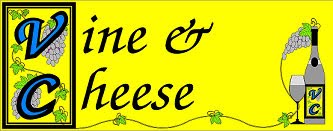Short of tasting a wine and knowing its quality, a wines label is as good of a selling point as any. If that wine has a good reputation, then your expectations reflect the promise the label represents. Vineyard terroir and viticulture along with hands-on quality control at the winery are what ensures that quality reputation.
Second label wines were started in the 1800's in Bordeaux, France to utilize juice from younger vines in prominant vineyards, vines that weren't quite ready for prime time; so a second label was created to get that juice out to market. It made sense for both the winery and for wine lovers of that product. Wineries could profitably market this extra juice and their customers could claim a certain brush with fame, even if it was just the second best wine from an illustrious property.
Flash forward: Wineries in California and elsewhere see this phenomenon and decide to cash in. New World second labels, while often very good quality wines in themselves, weren't necessarily from the same vineyards as their namesakes. (If the truth be known, some of the namesakes marketed as the primary labels weren't exactly what they were advertised as either...but that's a different subject.) Then, in time, as the second label gains repute and market share, it is usually spun off; that is, it's sold, usually to an industry giant and whatever juice had previously gone into the bottle would be completely different henceforth.
Preface by Skipstone is different. It is an authentic second label. As a matter of fact, as its name implies, Preface may more accurately be called an introductory wine to Skipstone's better wines. But that declaration may even understate things. According to one reviewer, Preface is already of similar quality to Skipstone's more pricey offerings. In other words, Preface is a fine red wine appreciably ranked with its peers in the Skipstone stable.
Preface is a Bordeaux blend of 66% Cabernet Sauvignon, 9% Merlot, 9% Malbec and 6% Cabernet Franc. The cool 2018 vintage meant a longer hangtime for the grapes resulting in "full flavored ripenesss and enhanced aromatics." Skipstone's organic estate fruit is harvested at night to retain freshness.
Philippe Melka is Skipstone's consulting winemaker. His record for scoring 100 point critically acclaimed wines is second only to Thomas Rivers Brown in California.




No comments:
Post a Comment